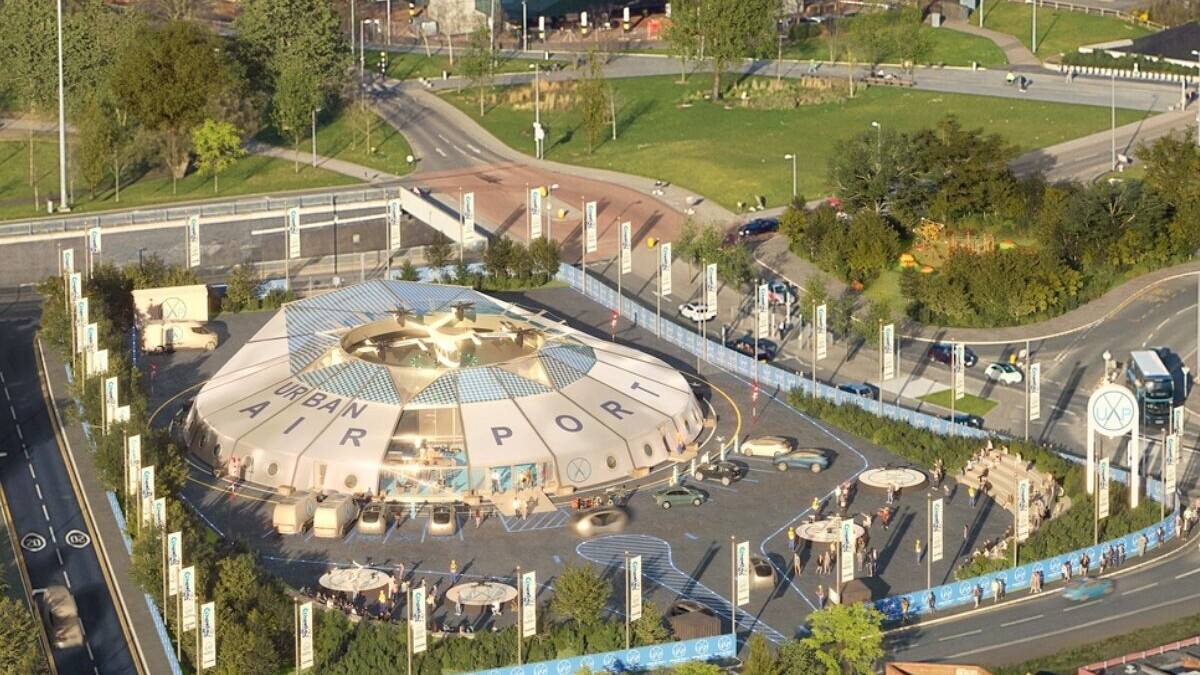
This article was originally published by Christopher Carey on Cities Today, the leading news platform on urban mobility and innovation, reaching an international audience of city leaders. For the latest updates, follow Cities Today on Twitter, Facebook, LinkedIn, Instagram, and YouTube, or sign up for Cities Today News.
UK start-up Urban-Air Port (UAP) has announced plans to establish 200 hubs for flying taxis and cargo drones across 65 cities globally over the next five years.
The firm is set to launch its first ‘vertiport’, dubbed the “worlds smallest airport”, in Coventry in April, and says a “significant investment” from Hyundai Motor Group’s urban air division Supernal will enable expansion to further sites.
“We have a variety of locations identified with our clients, customers and strategic partners – these will be announced in the weeks and months ahead, both across the UK and around the world,” Ricky Sandhu, Founder and Executive Chairman of UAP, told Cities Today.
Bases are planned for the UK, US, France, Germany, Scandinavia, Australia, South Korea and Southeast Asia, with Los Angeles and London already confirmed as future sites.
Expansion
The eVTOL (electric vertical take-off and landing) flying taxi market has expanded rapidly over the past five years, with further growth expected.
A report by market research firm Frost & Sullivan predicts that by 2040 there will be 430,000 such vehicles in operation around the world.
But in order for eVTOLs to be deployed commercially at scale, three core aviation regulatory approvals are required in most jurisdictions: type certification, production certification, and operational authorities.
These involve the regulatory approval of the airworthiness of a particular manufacturing design and certification to allow the mass production of a particular eVTOL. Additional operational requirements and authorisations for commercial operations are required.
In the US, the Federal Aviation Administration (FAA) is currently working to adapt existing aviation regulations to accommodate eVTOLs, while in Europe the European Union Aviation Safety Agency (EASA) is developing draft regulations and a new certification framework through a series of key building blocks.
But the adoption of full certification to operate ‘air-taxis’ that transport passengers on a commercial scale is still very much in its early stages.
Drones
In comparison, the use of unmanned delivery drones has been developing at a more rapid pace, and the incorporation of more heavy-duty models is increasingly being viewed as a potential solution to reducing road congestion in cities.
“Regulatory authorities around the world are working with us to realise the benefits of advanced air mobility from an infrastructure-to-infrastructure network capability,” Sandhu added.
“We are collaborating closely with UK’s Civil Aviaiton Authority for Air-One, where we will see for the first time a heavy lift drone with a MTOW (Maximum Take Off Weight) that is in excess of 125kg operating within a significantly built up area in downtown Coventry.”
Last year the firm was awarded £1.2 million (US$1.64 million) through the UK government’s Future Flight Challenge to develop the project.
The trials will be hosted at Coventry’s Ricoh Arena, a sports and exhibition venue on the outskirts of the city.
Get the TNW newsletter
Get the most important tech news in your inbox each week.




